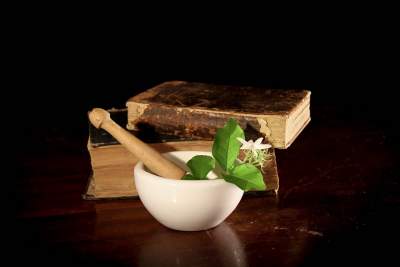
Ayurvedic Treatment of Ailments without side Effects!
01-12-2015 | Posted By: Admin | 2711 View(s)
India has maintained its traditional practices in the line of medicine. This classical or conventional form of treatment is known as Ayurvedic treatment or Ayurveda in Sanskrit. The various methods that Ayurvedic medicine has to offer to us are taken as a line of alternative medicine. Since the ages of the Indus Valley Civilization, practices of the Ayurveda has been popular in this part of the world. The Ayurvedic treatment process is quite simple indeed. It majorly involves the utilisation of various herbal plants.
What is Herbal?
Herbal is the word to signify a conglomeration of the numerous numbers of plants which are put together by their medicinal values and qualities. Herbal treatment, though might take a bit longer than chemical treatment, is a good option for treatment without any harmful side effects. Even when one considers the monetary part, herbal treatment is much cheaper than the allopathic treatment which we normally follow in our so-called modern way of living.
• Ensure a treatment without side effects.
In a world ruled by the chemically produced medicines, herbal treatment has faced a serious roadblock. All the modern citizens of the so-called advanced world are more interested in getting faster results through the use of allopathic medicines. Though it is true, yet we tend to forget the harmful side effects that these chemically produced medicines carry. Too much intake of these harmful chemicals can also lead to major organ breakdown. Moreover, when nobody has time for anything it becomes important to keep in mind that the herbs might save you from wasting your valuable time in a dispensary or Hospital.

• The 10 Most Essential Herbs which can help in Ayurvedic Treatment on a Daily Basis
1. Ispaghula: The modern way of life with both parents working has made the infestation of unhealthy diet in more or less all families and many people do suffer from constipation. Ispaghula also known as psyllium husk can help to bring balance to their bowel movements.
2. Camphor: This is the name of a certain herbal plant which blesses us with more than one benefit. The bark from this plant provides pain relief, is antibacterial or antifungal in nature. Also, the oil extracted from this tree aids in cold, asthma, disorders related to the liver and keeps a person psychologically at ease when that person is under stress.
3. Pudina: The leaf of the pudina plant has medicinal values and is one of the most popular Indian herbs used in home remedies. This helps to keep our blood clean, keeps or dental problems away, solves headaches, prevents vomiting and also comes in handy in case of throat problem caused by cold. Pudina also strengthens one body against bacteria-related attacks and makes one fitter.

4. Turmeric: This particular herbal plant, also an important member of the Indian herbs family is used in more or less every Indian household as an essential part of their cuisine. Turmeric aids one with heart problems, arthritis, and digestive problems. Turmeric is also a good medicine against cancerous cells and is suggested by Ayurvedic doctors for skincare.
5. Rose petals: The petal of this beautiful flower is indeed also blessed with numerous medicinal qualities and is utilised in Indian homes for its medicinal value. It aids in case of menstrual pain, indigestion, decreases blood pressure and helps cure insomnia.
6. Henna Leaves: Another Herbal plant and an important part of the huge Ayurvedic industry are the Henna leaves. They cure constipation, lessen the pain in the menstrual cramp, are very useful as an anti-detox agent and can be used to prevent skin abnormality.
7. Cinnamon: This can be referred to as a spice, and a popular spice as well used in almost every home throughout the country. The spice is useful to revive the kidney from its infected state. This also helps in improving the circulation of the blood all throughout the body. Also, cinnamon is useful for those with respiratory ailments. Ayurvedic specialists also suggest cinnamon as a medicine to prevent aching. It also aids in reducing stiffness.
8. Black Pepper: Another spice as well as a herb of high medicinal value. Cures a sore throat. Aids in the case of ulcers. Also, aids a person in case of constipation. It is also is suggested in case of toothaches. Black pepper is known for its special ability to prevent the infestation of intestinal worms and parasites.
9. Ginger root: This particular herb as an ayurvedic treatment has many uses. It is mainly at its highest demand during those seasons when flu is the dominant virus. This aids the body and keeps it strong improving its immune system. Thus, the body fights better and gets cured at a much faster rate. Also this ayurvedic medicine aids in curing inflammation or improving the condition of the digestive system.
10. Basil Plant or Tulsi: This is the most popular plant in the huge and enormous collection of Ayurvedic plants that you can come across. It is a tradition of most of the Indian family to plant at least one Basil plant in their courtyard. Such a tradition has come from the excellent medicinal qualities that it blesses us with. It is also very useful in curing cough and cold. It cures digestion related problems. Tulsi also keeps a person’s mind calm and aids in proper blood circulation.
Therefore it does make a lot of sense to go in for Ayurveda. Ayurvedic Treatment can help us to stay fit and healthy at a fraction of what other options can cost.


